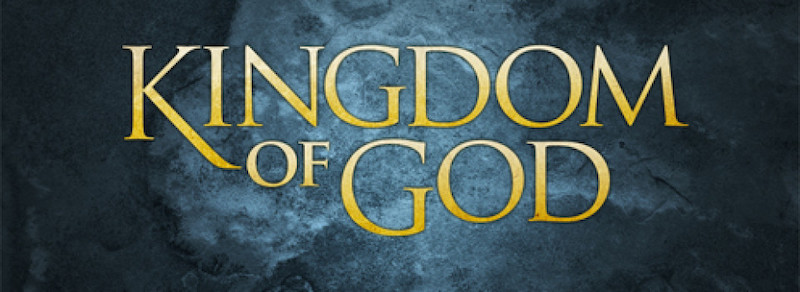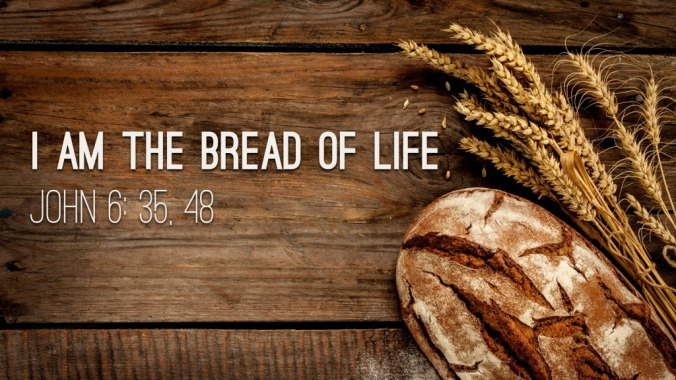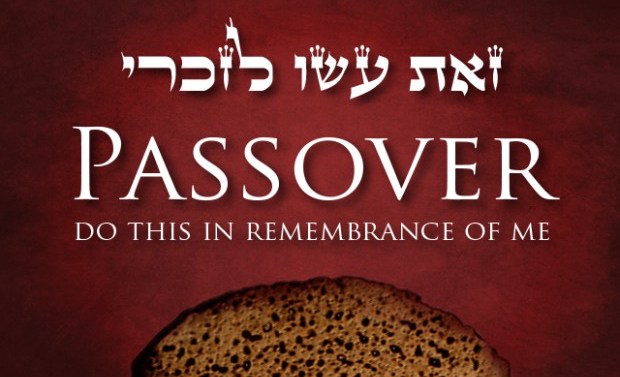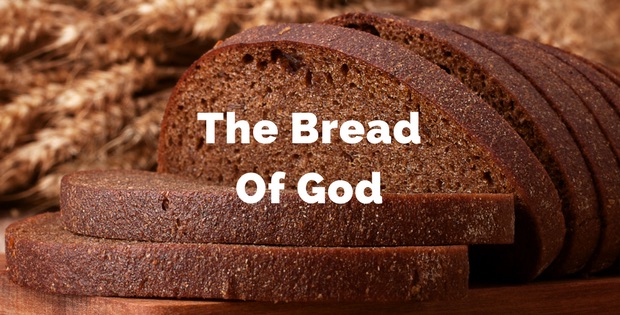The Kingdom of God, with Yeshua as the King, is often misunderstood by those in this world. It is challenging for the human mind to comprehend a kingdom with a power beyond what we know and see on this earth. We see evidence of this in the conversation between Pilate and Yeshua:
Therefore Pilate entered again into the Praetorium, and summoned Yeshua and said to Him, “Are You the King of the Jews?” Yeshua answered, “Are you saying this on your own initiative, or did others tell you about Me?” Pilate answered, “I am not a Jew, am I? Your own nation and the chief priests delivered You to me; what have You done?” Yeshua answered, “My kingdom is not of this world. If My kingdom were of this world, then My servants would be fighting so that I would not be handed over to the Jews; but as it is, My kingdom is not of this realm.” Therefore Pilate said to Him, “So You are a king?” Yeshua answered, “You say correctly that I am a king. For this I have been born, and for this I have come into the world, to testify to the truth. Everyone who is of the truth hears My voice.” Pilate said to Him, “What is truth?” And when he had said this, he went out again to the Jews and said to them, “I find no guilt in Him….” – John 18:33-38
Pilate was trying to understand if Yeshua was a king or not and he wanted a straightforward answer regarding this. Yeshua explained to Pilate that yes, He is a king but that His kingdom is not of this world. Pilate had no patience to understand the complexity of this other kingdom and eventually condemned Yeshua to death.
As Yeshua Himself stated in the above verses, the very reason that He was born and came into this world was to lay claim to His rightful place as King and to testify to the truth. Yeshua is the fulfillment of the truth of God that has been spoken since creation, however, many people in this world struggle to understand the truth of who He is and what He came to accomplish.

The Process of Becoming King
The crowning of Yeshua as King over this world did not follow the worldly picture of greatness and majesty but rather the spiritual requirements of poverty and humility. The Kingdom of God operates on opposite standards from those of this world as we read in the New Testament:
Being found in appearance as a man, He humbled Himself by becoming obedient to the point of death, even death on a cross. For this reason also, God highly exalted Him, and bestowed on Him the name which is above every name, so that at the name of Yeshua every knee will bow, of those who are in heaven and on earth and under the earth, and that every tongue will confess that Yeshua Messiah is Lord, to the glory of God the Father. – Philippians 2:8-11
The honor and right of Yeshua to be exalted as King over all of humanity is based on His obedience and death on the cross. At the very moment that Pilate failed to understand how Yeshua was King of a different Kingdom, Pilate himself became part of the process which led to Yeshua’s humility until death resulting in exaltation as King.
Throughout His ministry years, Yeshua had to constantly guard against worldly and premature expectations of being crowned King. Yes, Yeshua had ever right to be King but the path to establish His kingdom was different from what His disciples had hoped for as well as what the majority of the Jewish people were seeking. We see an example of the expectations of the Jewish people to make Yeshua King after the miracle of feeding the five thousand:
So they gathered them up, and filled twelve baskets with fragments from the five barley loaves which were left over by those who had eaten. Therefore when the people saw the sign which He had performed, they said, “This is truly the Prophet who is to come into the world.” So Yeshua, perceiving that they were intending to come and take Him by force to make Him king, withdrew again to the mountain by Himself alone. – John 6:13-15
When the Jewish people saw the miraculous sign that Yeshua performed by multiplying the bread and the fish they understood that Yeshua is the expected Prophet who would be their Messiah. Although the people understood correctly that Yeshua was the prophesied Messiah, their timing and expectations of Him as King were not in sync with God’s plan for Him. It was at that time that Yeshua escaped to the mountain.
The Food of Eternal Life
On the following day, the people searched for Yeshua until they found Him. Yeshua knew the heart of the people and He wanted them to understand His path to becoming King and their path to entering His Kingdom:
When they found Him on the other side of the sea, they said to Him, “Rabbi, when did You get here?” Yeshua answered them and said, “Truly, truly, I say to you, you seek Me, not because you saw signs, but because you ate of the loaves and were filled. Do not work for the food which perishes, but for the food which endures to eternal life, which the Son of Man will give to you, for on Him the Father, God, has set His seal.” Therefore they said to Him, “What shall we do, so that we may work the works of God?” Yeshua answered and said to them, “This is the work of God, that you believe in Him whom He has sent.” – John 6:25-29
Although there was great expectation that Yeshua was the Messiah, the people’s priorities were focused on earthly desires instead of heavenly aspirations. Yeshua challenged the people to not seek the physical food which is temporal but rather “the food which endures to eternal life,…”
The people were pursuing the correct Messiah but they did not understand their own need for Him. They wanted the provision of God and they wanted to do the works of God but they failed to see beyond their own expectations. In response to all of their questions, Yeshua told the people that the only thing they truly needed was to believe in the gift of God whom He had sent.
The people understood that Yeshua was referring to Himself as the One whom God had sent down from heaven but again they wanted proof:
So they said to Him, “What then do You do for a sign, so that we may see, and believe You? What work do You perform? Our fathers ate the manna in the wilderness; as it is written, ‘He gave them bread out of heaven to eat.’” Yeshua then said to them, “Truly, truly, I say to you, it is not Moses who has given you the bread out of heaven, but it is My Father who gives you the true bread out of heaven. For the bread of God is that which comes down out of heaven, and gives life to the world.” Then they said to Him, “Lord, always give us this bread.” Yeshua said to them, “I am the bread of life; he who comes to Me will not hunger, and he who believes in Me will never thirst.” – John 6:30-35
Throughout this dialogue, the people were constantly trying to make Yeshua meet their expectations of who they think the Prophet of God should be and what He should do. On the other hand, Yeshua was constantly trying to point the people to the Father in heaven and to help them see that He (Yeshua) is the true spiritual provision of God. The people were focused on physical bread and the manna in the desert while Yeshua was trying to get them to see a greater provision of God, the One who came down from heaven.

The Bread of Life
The theme of John chapter six is bread. Yeshua provided bread for the large group of more than five thousand people, the people sought after Yeshua because of the miracle of multiplying the bread, the people asked for another sign from Yeshua like the bread from heaven (the manna) which the people ate in the desert, and Yeshua claimed to be “the bread of life” with the promise of full satisfaction for all of those who come to Him and believe in Him. Yeshua’s statement to the people that He is “the bread of life” was so much more than an eternal provision of food, it was an invitation to receive eternal life through Him.
As the dialogue continued, Yeshua made sure His listeners understood exactly what He meant as He again claimed to be “the bread of life” as recorded later in the text:
“Truly, truly, I say to you, he who believes has eternal life. I am the bread of life. Your fathers ate the manna in the wilderness, and they died. This is the bread which comes down out of heaven, so that one may eat of it and not die. I am the living bread that came down out of heaven; if anyone eats of this bread, he will live forever; and the bread also which I will give for the life of the world is My flesh.” Then the Jews began to argue with one another, saying, “How can this man give us His flesh to eat?” – John 6:47-52
Yeshua invited the people to eat of this bread, speaking of Himself, in order to receive eternal life. It was a hard statement that even His disciples struggled to understand (John 6:60). What did Yeshua truly mean when He said, “I am the bread of life”? In what reality did Yeshua become the bread of life?
The Bread of God
The concept of Yeshua being “the bread of life” is generally understood as His being the spiritual provision for our souls just as bread is to the body. There is also the understanding of Yeshua as the Word of God and most of us our familiar with the devotional booklet called “My Daily Bread” which carries the double meaning of daily partaking of God’s Word and meeting daily with God through Yeshua. All of these parallels being true, I believe there is more to what Yeshua is communicating to us by calling Himself “the bread of life” and we find this further revelation in this week’s Torah Portion.
Right before Yeshua stated that He is the bead of life, He described Himself in a different image of bread which comes from heaven:
Yeshua then said to them, “Truly, truly, I say to you, it is not Moses who has given you the bread out of heaven, but it is My Father who gives you the true bread out of heaven. For the bread of God is that which comes down out of heaven, and gives life to the world.” – John 6:32-33
When Yeshua spoke of the “bread of God” in the above verses He was speaking of Himself. He is the “bread of God” who came down out of heaven. How did Yeshua become the “bread of God” in order to give life to the world?
This week’s Torah Portion is taken from Leviticus chapters twenty-one through twenty-four. The first two chapters of this portion (Lev. 21-22) focus specifically on various regulations which the priests were to keep in order to live holy lives unto God. Towards the beginning of this week’s reading we read the following verse:
They shall be holy to their God and not profane the name of their God, for they present the offerings by fire to the LORD, the food of their God; so they shall be holy. – Lev. 21:6
Since the priests are the ones who draw near to God by presenting fire offerings to the LORD, they are commanded to remain holy by observing various regulations which are in addition to the commandments given to the Israelites.
In the verse quoted above, we read how “offerings by fire” are also called “the food of their God”. The phrase “food of their God” in the Hebrew reads as follows: לחם אלוהיהם – Lechem Elohehem and is literally translated as “bread of their God” or “food of their God.” The Hebrew word לחם – Lechem is the word for either bread or food, it means both. Most of us are familiar with the name of the city בית לחם – Beit Lechem which is Bethlehem and simply means “House of bread” or “House of food.”

Lechem Elohim – The Bread of God
The unique linguistic use of this word לחם – Lechem in Leviticus 21:6 is that it is being equated with the sacrifices of God in the phrase לחם אלוהיהם – Lechem Elohehem – “bread of their God.” This phrase “bread of God” is only used six times in all of the Bible and all six times are found here in this week’s Torah Portion (Lev. 21:6,8,17, 21,22. 22:25). In every occurrence of the phrase “bread of God” it is equated with the sacrifices which the priests offered to the LORD.
When Yeshua spoke of Himself as the “bread of God” and as the “bread of life” in John chapter six, it seems highly probable that Yeshua was speaking of the “bread of God” referenced in Leviticus chapter twenty-one which is equated with the sacrifices of the LORD. We know that it is only by means of believing in the sacrifice of Yeshua that we have eternal life and that there is no forgiveness of sin without His shed blood.
Further evidence of Yeshua referencing the phrase “bread of God” in relation to His sacrifice is made clear by the context of the events in John chapter six:
Now the Passover, the feast of the Jews, was near. Therefore Yeshua, lifting up His eyes and seeing that a large crowd was coming to Him, said to Philip, “Where are we to buy bread, so that these may eat?” – John 6:4-5
It appears that Yeshua was teaching the people an object lesson through the miracle of multiplying the bread so as to speak to them about the true “bread of God,” the sacrifice of Himself at Passover.
In conclusion, we know that Yeshua used the unleavened bread (Matzah) at Passover (The Last Supper) to represent His body as the sacrificial Lamb which became a reality a few hours later: “For Messiah our Passover also has been sacrificed.” (1 Corinthians 5:7b) Yeshua is the “bread of God” who gives eternal life to the world through the sacrifice of His body!
Shabbat Shalom!
If you enjoyed reading this article, share it today with friends! We also invite you to sign up for our weekly Torah Portion commentary on the sidebar to the right.
Help keep our weekly commentaries free and available to all. Click here to donate today:
*All Scripture take from NASB Copyright © 1960, 1962, 1963, 1968, 1971, 1972, 1973, 1975, 1977, 1995 by The Lockman Foundation
**The Hebrew name “Yeshua” is used in the biblical quotations in place of the English name “Jesus” to give emphasis to the meaning of this name, salvation. The word “Messiah” is also used in place of the word “Christ” to bring clarity to the office of Yeshua.



This is a difficult passage. Does it mean the bread was multiplied as the Body of Christ is multiplied in the world? How does this relate to His body being broken for us and “by His stripes we are healed?” I’ve heard the teaching that the Communion is healing and this seems to support that idea. Just some thoughts.
Hi Rosa,
As we see in the book of Leviticus, the phrase “bread of God” is used to mean the sacrifices which were offered to God. So when Yeshua calls Himself the Bread of God, we can see a parallel of Yeshua as the Bread of God becoming the sacrifice of God. I hope this helps.